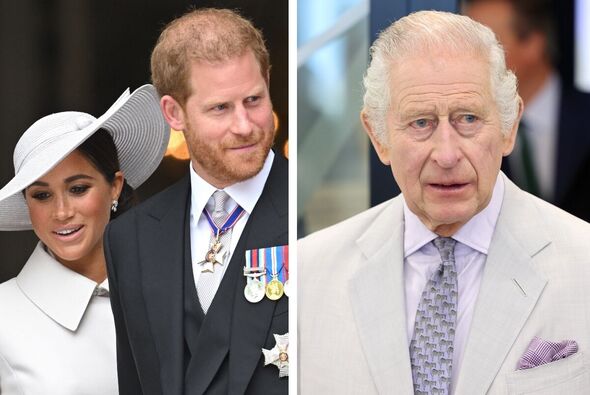Concerns are mounting regarding King Charles‘ ability—or perhaps his willingness—to enforce discipline within the royal family, particularly concerning Prince William and Kate Middleton, affectionately known as the Waylesses.
This situation has sparked speculation about whether the King is losing grip on the monarchy and if the family’s internal dynamics are shifting in unexpected ways.
Author Tom Sykes recently discussed these issues during an interview with the Daily Beast, shedding light on the Waylesses’ conspicuous absence from a significant royal lunch.
This gathering, which typically serves as a cornerstone for family unity, saw the couple notably missing, raising eyebrows.
Sykes pointed out that their choice to skip this event illustrates a growing confidence in stepping away from established royal traditions—traditions they reportedly find increasingly tiresome.
Sykes elaborated on the implications of this absence, suggesting it reflects the couple’s burgeoning independence within the royal framework.
He noted that while King Charles would have preferred their presence at the lunch, his inability or unwillingness to insist on their attendance raises questions about his authority and capacity to maintain discipline within the family.
This marks a stark contrast to the past when such absences were virtually unheard of.
Reflecting on the reign of the late Duke of Edinburgh, Sykes remarked, “You can’t imagine anyone missing it when Prince Philip was around.” His comments highlight the more disciplined approach taken by previous monarchs compared to the current climate under King Charles.
The expert posits that this development might indicate a broader transformation within the monarchy itself.
Daniela Elser, another royal expert, echoed these sentiments in her piece for news.com.au.
She emphasized that during Queen Elizabeth II’s reign, such absences from key events were almost non-existent.
Elser pointed out that the late queen maintained a firm grip on family matters, ensuring that senior members adhered to royal traditions and attended important gatherings.
The same could be said for Prince Philip, who was known for his strict adherence to protocol within the royal household.
His insistence on discipline set a standard that seems to be wavering under King Charles.
The absence of the Waylesses from the lunch has attracted considerable attention, leading many to speculate whether they are deliberately distancing themselves from certain royal expectations.
This shift in behavior may suggest a change in how William and Kate view their roles within the monarchy.
Their increasing confidence in challenging long-standing traditions could be indicative of a broader evolution within the royal family.
As future king and queen, they might be attempting to redefine their positions in a way that resonates with contemporary audiences.
Moreover, the younger generations appear to have a different perspective on the monarchy, which could influence how William and Kate balance their royal duties with personal freedoms.
This dynamic is essential as they navigate their future roles and responsibilities, potentially shaping the monarchy’s trajectory in the years to come.
The concerns raised by experts like Sykes and Elser illuminate the possible shifts occurring within the royal family.
While King Charles may aspire to modernize the monarchy, his effectiveness in enforcing traditional family discipline appears to be waning, particularly as prominent royals like the Waylesses embrace a more independent stance.
As the royal family continues to evolve, the question remains: how will these changing dynamics affect the monarchy’s future?
Related Stories

